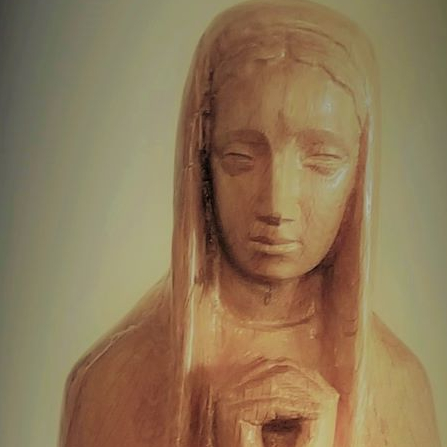A reflection on the first Mass reading for the first Tuesday in Ordinary Time (1 Samuel 1:9-20) by Mother Maria-Michael Newe, OSB
In the beautiful story about Hannah, we hear that “in her bitterness she prayed to the Lord, weeping copiously” (1 Sam 1:10). St. Benedict also says that we should weep in our prayer. This weeping happens when we allow something to touch us deeply. Now think of how Hannah could even be grateful for Peninnah (who rubbed Hannah’s barrenness in her face) because she brought her to a deeper prayer. In her bitterness Hannah did not turn away from God; she turned toward God.
We all have our moments of bitterness, of pain, and of sorrow, but the important part is what we do with them. These moments can be the greatest graces in our lives. They can be the things that push us in the right direction. So God allows them. He says, “Yes, this is actually going to be for your good…”
When we hear Hannah saying later in her prayer, “if you remember me, and do not forget me,” we seem to hear her greatest sorrow—that God has forgotten her. It seems that He has remembered Peninnah over and over again, since she had many children, and which seems to prove to Hannah that God has forgotten her. She is noticed by Eli, the temple priest, praying in an unknown way, and Eli judges her. He assumes that she’s drunk, but he takes it back after she explains her situation. Thank God for her humility. She didn’t mind being humble and telling him that she is just a very unhappy woman. She doesn’t lash out at him, she doesn’t scream at him or push him down. Instead she tells him that her prayer is prompted by her deep sorrow and misery.
I think it is simply because of the Lord’s great love for us that He allows us such sorrows. He just wants us to come to Him. And if we won’t come to Him simply, it seems He will allow greater things to happen that will force us to come to Him—because what He really wants is that relationship. So whatever will bring that about, God allows. And He can use any means. Harsh words or the feeling of being judged or unaccepted, God will use for our good. So instead of being upset, we should thank Him. Thank Him that He allowed that thing to happen because it leads us to a greater good, to Him. And then it changes how we see it; instead of being a point sorrow it becomes a point of joy.
Remember that evil only wants to take from God what He loves. So whatever can take you away from prayer, however little it may be, will be used by evil. At the same time, though, anything that brings us back to God is a tool for good. That’s a hard lesson to learn, because we usually want to blame somebody for our sorrows. Blaming someone else so much easier than acknowledging that we weren’t doing what we were supposed to be doing, or we weren’t reaching deeper into God. We look for someone else to blame so that we aren’t blamed. The minute we can start changing that, we’ve changed our lives—we’ve changed our attitude. What a blessing. And so it was with Hannah. Eli blesses her, “Go in peace, and may the God of Israel grant you what you have asked of him.” Let’s wish that for one another. Let’s give that blessing. Go in peace, and may the God if Israel grant you what you have asked of Him. That is my prayer for you today.

